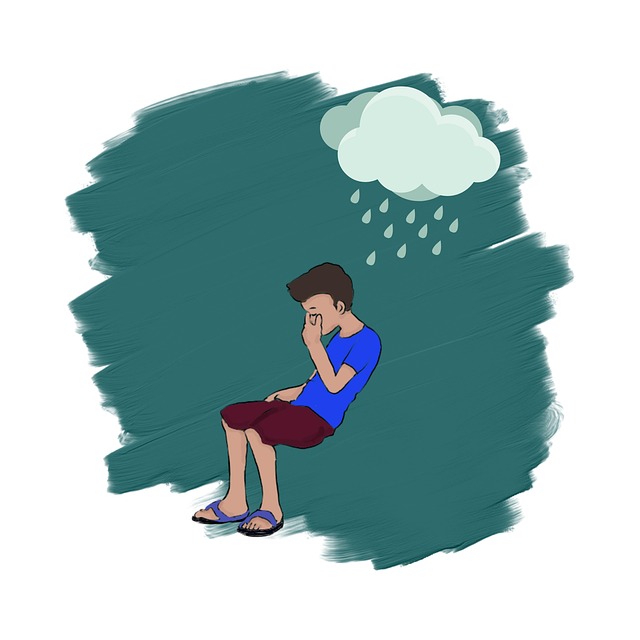Successful community outreach programs, like Arvada Polyamorous and Open Relationships Therapy, require understanding local dynamics through surveys, engagement with leaders, and event attendance. Collaboration with mental health organizations broadens insight and facilitates resource sharing. Mindfulness principles and compassion cultivation practices create safe, inclusive spaces for diverse relationships, enhancing emotional resilience and community bonds. Tailored communication strategies across multiple channels build trust, while Mental Wellness Journaling and Crisis Intervention empower participants and foster open dialogue. Measuring success involves defining clear goals, tracking attendance, surveying well-being perceptions, and assessing long-term cultural changes in mental healthcare and community harmony.
Community outreach programs play a pivotal role in fostering social change and strengthening local bonds. This article explores the comprehensive process of implementing such initiatives, focusing on inclusive practices and meaningful engagement. We delve into understanding community needs, from identifying gaps to collaborating with local organizations, designing safe spaces for diverse relationships, and employing effective communication strategies. Additionally, we discuss measuring success and evaluating impact, highlighting the long-term positive changes achievable through programs like Arvada Polyamorous and Open Relationships Therapy.
- Understanding the Needs of Your Community: Identifying Gaps and Collaborating with Local Organizations
- Designing Inclusive Programs: Creating Safe Spaces for Diverse Relationships
- Implementing Effective Communication Strategies: Reaching Out and Engaging with Participants
- Measuring Success and Evaluating Impact: Ensuring Long-Term Positive Changes in the Community
Understanding the Needs of Your Community: Identifying Gaps and Collaborating with Local Organizations

Understanding the needs of your community is a crucial step in implementing successful outreach programs. This involves identifying gaps in services and resources available to residents, especially those that cater to diverse relationship dynamics like the Arvada Polyamorous and Open Relationships Therapy community. By conducting surveys, engaging with local leaders, and attending community events, organizations can gain valuable insights into the unique challenges and aspirations of their area.
Collaborating with existing local organizations, including those focused on mental health, relationships, and social services, is essential. These partnerships allow for a more comprehensive understanding of community needs and facilitate the sharing of resources, expertise, and networks. Utilizing Mind Over Matter Principles and Compassion Cultivation Practices can help foster an environment of openness and support, enhancing the effectiveness of communication strategies employed during outreach efforts.
Designing Inclusive Programs: Creating Safe Spaces for Diverse Relationships

In designing community outreach programs, it’s crucial to create inclusive spaces that foster diverse relationships. This involves recognizing and embracing the unique needs and dynamics of various individuals, including those in polyamorous and open relationships. Many people struggle with their romantic orientations and identities, often seeking support to develop inner strength and enhance mental wellness. Programs like Arvada Polyamorous and Open Relationships Therapy play a vital role here, offering safe environments where individuals can openly discuss their experiences without fear of judgment.
By incorporating mindfulness meditation techniques into these initiatives, participants can cultivate present-moment awareness and emotional resilience. This not only promotes individual mental wellness but also strengthens the bonds within communities, creating a supportive tapestry where diverse relationships thrive. Such programs, tailored to foster inclusivity and understanding, are game changers in building stronger, more connected neighborhoods.
Implementing Effective Communication Strategies: Reaching Out and Engaging with Participants

Implementing effective communication strategies is a cornerstone of successful community outreach programs, especially when focusing on sensitive topics like Arvada Polyamorous and Open Relationships Therapy. Reaching out to participants requires tailoring messages to diverse audiences, ensuring accessibility through various channels like social media, local events, and peer-to-peer networks. Engaging with individuals in their preferred environments fosters trust and encourages participation, enhancing the effectiveness of the program.
For instance, incorporating Mental Wellness Journaling Exercises as a guidance tool can facilitate open dialogue during group sessions. Crisis Intervention Guidance and Emotional Regulation techniques taught through interactive workshops not only empower participants but also create a safe space for sharing experiences. These strategies collectively contribute to building a supportive community where individuals feel heard, understood, and supported in navigating complex interpersonal dynamics.
Measuring Success and Evaluating Impact: Ensuring Long-Term Positive Changes in the Community

Measuring success and evaluating impact are crucial aspects of community outreach programs, ensuring long-term positive changes. It’s essential to define clear goals and metrics tailored to the program’s objectives, such as improving access to mental health services or fostering self-esteem improvement within targeted communities. By collecting quantitative and qualitative data, organizations can assess the reach and effectiveness of their initiatives. This includes tracking attendance at workshops or therapy sessions, surveying participants’ perceptions of their well-being, and observing improvements in self-care practices.
For specialized programs like Arvada Polyamorous and Open Relationships Therapy, evaluating impact involves delving into cultural sensitivity in mental healthcare practice. By examining changes in attitudes, relationships, and overall community harmony, the program’s success can be gauged. Self-esteem improvement, a key focus area, can be assessed through pre-post comparisons of participants’ self-assessments, feedback from support groups, and observations of enhanced self-care practices within the community. These evaluations not only measure immediate outcomes but also lay the groundwork for sustaining positive changes over time.
Implementing community outreach programs, like those offered by Arvada Polyamorous and Open Relationships Therapy, requires a holistic approach that addresses diverse needs. By understanding community gaps, designing inclusive spaces, employing strategic communication, and meticulously evaluating impact, these initiatives can foster meaningful connections and drive lasting positive change. Such efforts not only strengthen the fabric of communities but also empower individuals to navigate relationships in healthy, supportive environments.











